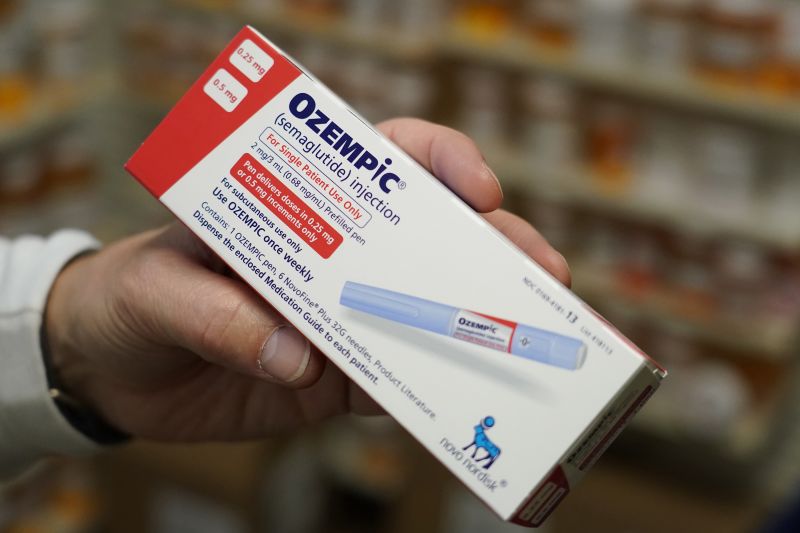Medicare shelled out $5.7 billion on Ozempic and other similar diabetes drugs in 2022, up from $57 million in 2018, according to a new KFF analysis.
The pricey medications, which include Mounjaro and Rybelsus, have become super popular for the treatment of diabetes and for weight loss. But Medicare is not allowed by law to cover drugs for weight loss.
Medicare began covering Ozempic for people with diabetes in 2018, with Rybelsus and Mounjaro joining in 2019 and 2022, respectively. Medicare recently announced that it would cover Wegovy in people who are obese or overweight and have heart disease after the drug gained approval from the US Food and Drug Administration for cardiovascular benefits.
The KFF study examined gross spending, which does not take into account any rebates paid by drug manufacturers that would lower Medicare spending. Data on rebates is not publicly available.
Ozempic ranked as the sixth top selling medication in Medicare Part D drug plans in 2022, up from 10th the prior year, according to KFF. Medicare spent $4.6 billion on it in 2022, compared with $2.6 billion the year before. The current list price for Ozempic is $969 for a four-week supply.
The drugs’ popularity and prices could end up raising costs for both the federal government and Medicare enrollees broadly.
“These drugs offer substantial potential health benefits, but the combination of intense demand, new uses, and high prices for these treatments is likely to place tremendous pressure on Medicare spending, Part D plan costs, and premiums for Part D coverage,” KFF wrote in its analysis.
Although coverage of Wegovy and similar drugs could reduce other health care spending, these medications at their current prices would probably still cost the federal government more than they would save, according to a Congressional Budget Office analysis released last week.
Medicare could choose Ozempic and Rybelsus for its drug negotiation program as early as 2025, KFF wrote, which could lower spending on the medications.

